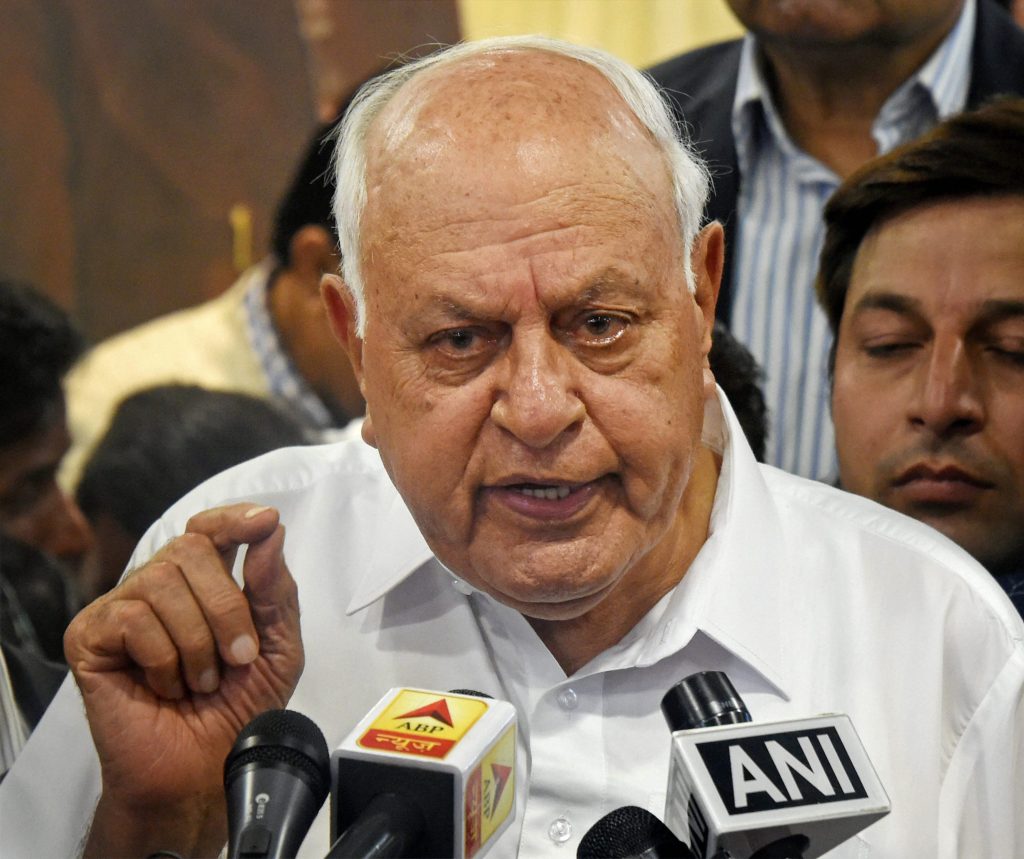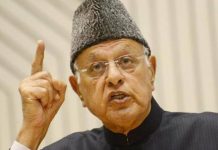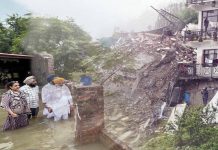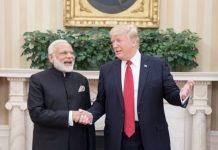The fissures within INDIA Bloc became apparent after National Conference (NC) displayed its reluctance to part with any of the 3 Lok Sabha seats in Kashmir, which it had won during last elections, for its allies as part of seat sharing arrangement in the J-K. A report by Riyaz Wani

With the National Conference (NC) deciding to contest the forthcoming Lok Sabha elections independently, it has triggered ripples of unease among the members of the INDIA Alliance in Jammu and Kashmir. More so, the Peoples Democratic Party (PDP), a key ally in the coalition, has been miffed by the NC decision.
“As far as seat sharing is concerned, NC will contest alone and there’s no doubt about it,” NC leader Farooq Abdullah said while speaking at a press conference.
The alliance, comprising NC, PDP and Congress has been facing internal challenges ranging from desertions to challenging negotiations over the distribution of seats, although there aren’t enough seats to distribute. Jammu and Kashmir has five parliamentary seats and Ladakh has one. Three of these six seats were won by the BJP last time. However, the latest stance taken by the NC, asserting its unwillingness to allocate any of the three Lok Sabha seats from Kashmir to its allies, has intensified the strains within the coalition. NC had won these seats in the last election.
PDP, which expected a share in the three Valley seats, may also decide to go solo and contest independently, as may the Congress. This will split the votes among the three parties. Votes will further fragment with the other non-allied parties like People’s Conference, Apni Party and Democratic Azad Party – seen as close to the BJP – also throwing their hat in the ring. This will be a certain advantage for the BJP which will fight all the six seats in J&K and Ladakh.
Incidentally, the NC and the PDP are also part of the People’s Alliance for Gupkar Declaration (PAGD). The PAGD, formed with an objective of ensuring restoration of the special status of Jammu and Kashmir, faces an internal challenge as its constituent members, which also include CPI(M) and Awami National Conference, grapple with divergent interests and ambitions. But ever since its formation in 2020, the PAGD has become a distant memory, with the constituent parties not even meeting, let alone talking about the restoration of Article 370.
As things stand, a significant opinion in the NC and the PDP has grown increasingly skeptical about their alliance and for very different reasons: the NC has come to see the PAGD as detrimental to its traditional standing as the largest J&K party and the PDP, in a sense, reciprocates the feeling. In the process, both the parties have gone slow on the demand for restoration of the former state’s autonomy as the centre has turned up the heat.
Though the parties again banded together when they joined the INDIA Alliance, they have since drifted apart. One of the factors for this is that J&K has too few a number of seats to share. However, the NC has expressed its willingness to go for seat-sharing on the three seats held by the BJP candidates.
“NC workers want to fight elections on all six seats but the truth is that sometimes for a bigger objective, small sacrifices have to be made. If the bigger objective is to win seats back from the BJP, it is necessary for the National Conference to enter into a seat sharing understanding with the Congress. Our doors are open,” Omar Abdullah, the NC’s vice president, said.
“Informal talks with the Congress are already on and there is scope for further discussions,” he added.
As both the NC and PDP actively mobilize their efforts to assess their strengths across the five Lok Sabha constituencies in Jammu and Kashmir and the one in Ladakh, the unfolding political drama raises fundamental questions about the stability of the INDIA bloc alliance. The fissures within the coalition in J&K reflect the intricate challenges of managing alliances in a region characterized by complex political dynamics, regional aspirations, and individual party ambitions.













